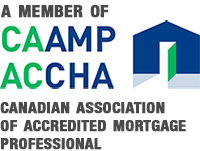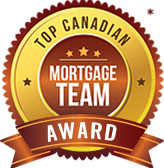


allJesse helped us to use the equity in our home to do some landscaping, build a fence and pay for our daughter's education. Even with a very low credit scores, he was able to give us a good mortgage rate. After 2 years our credit had improved and Jesse got us approved with a traditional bank and got us the lowest 5 year fixed rate in Canada. We are very impressed with his knowledge and services.
JESSE BRUN
Mortgage IntelligenceLicense #10428
Mortgage Broker (NB)
Mortgage Agent Level 2 (ON)

HELOCS Toronto
HELOCS in Toronto: What You Need to Know
If you're a homeowner in Toronto, you may have heard of HELOCS. These loans are a popular way to tap into the equity you've built up in your home and use it for a variety of purposes, from home renovations to debt consolidation. In this article, we'll go over the basics of HELOCS, how they work, and how they can benefit you as a Toronto homeowner.
What is a HELOC?
A HELOC is a type of loan that allows you to borrow money against the equity you've built up in your home. Equity is the difference between the current value of your home and the amount of any outstanding mortgage or other liens. For example, if your home is currently valued at $500,000 and you have a mortgage balance of $200,000, you have $300,000 in equity.
With a HELOC, you can borrow a portion of that equity as a lump sum, usually at a fixed interest rate. You'll then repay the loan over a set period of time, typically 15 to 30 years, in equal monthly installments. A HELOC is essentially a mortgage.
How Can You Use a HELOC?
One of the great things about HELOCS is that you can use the money for just about anything. Some common uses for HELOCS include:
- Home renovations or repairs
- Starting a small business
- Covering unexpected expenses or emergencies
- Debt consolidation
- Paying for college tuition or other educational expenses
What Are the Benefits of a HELOC?
There are several benefits to taking out a HELOC in Toronto, including:
- Lower interest rates: Because HELOCS are secured by your home, they typically have lower interest rates than unsecured loans, such as credit cards or personal loans.
- Tax deductions: In some cases, the interest paid on a HELOC may be tax deductible. However, it's important to consult with a tax professional to determine whether you're eligible for this deduction.
- Flexibility: Unlike a traditional mortgage, which requires you to use the funds to purchase a home, a HELOC can be used for a variety of purposes.
In addition to using HELOCS to pay for large expenses or consolidate debt, they can also be used to make home improvements. Homeowners can use the equity in their homes to fund renovations and upgrades that can increase the value of their property.
Some common home improvements that homeowners use HELOCS for include kitchen and bathroom remodels, adding a new room or space, replacing roofing or siding, upgrading HVAC systems, or installing new flooring. These improvements can not only increase the value of the home but also improve the homeowner's quality of life.
When considering a HELOC for home improvements, it's important to keep in mind that the loan amount should not exceed the projected increase in the value of the home. This will help ensure that the investment is worth it and that the homeowner can recoup the costs when they eventually sell the home.
Our mortgage office can help homeowners in Toronto navigate the process of obtaining a HELOC for home improvements. We can assess the value of the home and provide guidance on what improvements may be the best investment for the homeowner's specific situation. We can also help with the application process and provide options for repayment terms that work for the homeowner's budget.
It's important to note that while HELOCS can be a useful financial tool, they do come with risks. If a homeowner defaults on the loan, they may be at risk of losing their home. It's crucial to carefully consider the decision to take out a HELOC and ensure that the repayment plan is manageable.
At our mortgage firm, we take the time to discuss the risks and benefits of HELOCS with our clients to help them make informed decisions. We strive to provide personalized service and support throughout the loan process to ensure that our clients are comfortable and confident with their financial decisions.
In conclusion, HELOCS can be a valuable tool for homeowners in Toronto who need to finance large expenses or make home improvements. They offer competitive interest rates and flexible repayment terms, making them a popular choice for many homeowners. Our mortgage office can help homeowners navigate the process of obtaining a HELOC and provide guidance on how to use the funds responsibly. Contact us today to learn more about how a HELOC can benefit you.
How Do You Apply for a HELOC?
If you're interested in taking out a HELOC in Toronto, the first step is to contact our mortgage office at (888)878-4660 or fill out the short form on the top left-hand side of our website. We'll work with you to determine whether a HELOC is right for your needs and help you through the application process.
Below is a list of words that are associated with getting a home mortgage loan. We are providing you the list along with their definitions to help your mortgage journey:
Lien: a legal claim against a property used as collateral for a debt.
Pre-approval: a process where a lender reviews a borrower's financial information and determines how much they are qualified to borrow.
Second mortgage: a type of mortgage where the borrower uses their home as collateral to take out a second loan.
Title search: a process in which a title company reviews public records to ensure that there are no outstanding liens or other claims against a property.
Fixed-rate mortgage: a type of mortgage where the interest rate remains the same for the entire term of the loan.
Adjustable-rate mortgage (ARM): a type of mortgage where the interest rate can change over time, typically after an initial fixed-rate period.
Debt-to-income ratio: a comparison of a borrower's monthly debt payments to their monthly income, used to determine their creditworthiness.
Appraisal: a process where a professional appraiser determines the value of a property.
Title: the legal right to own and use a property.
Home equity line of credit (HELOC): a line of credit that allows the borrower to borrow against the equity in their home.
Equity: the difference between the value of a property and the outstanding balance of any mortgages or other liens against the property.
Mortgage insurance: insurance that protects the lender in case the borrower defaults on the loan.
Homeowner's insurance: insurance that protects against damage to a home or other property, typically required by lenders as a condition of a mortgage loan.
Points: fees paid by the borrower to the lender at closing in exchange for a lower interest rate.
Interest-only mortgage: a type of mortgage where the borrower only pays interest on the loan for a certain period of time before starting to pay off the principal.
Home equity loan: a type of loan where the borrower borrows against the equity in their home.


